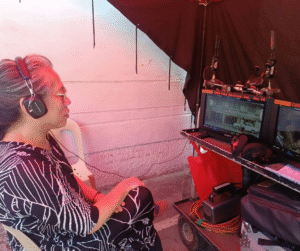By Mari-An Santos
Filipinos living overseas have been cautioned to remain vigilant against pasabuy scams, following numerous cases where victims have been cheated out of their money.
Scammers have been exploiting social media by creating fake accounts, using stolen photos to gain trust, and then deceiving victims into transferring funds through online payment platforms, leaving them with neither goods nor money.
Pasabuy, a term derived from the Filipino word “pasa” (pass) and the English word “buy,” refers to the practice where Filipinos travel to other countries to purchase specific items for their fellow Filipinos, in exchange for a fee on top of the original purchase price.
In a recent incident, a scammer who used the name Al Shaya and fake photos advertised her pasabuy services on Facebook groups frequently visited by Filipinos residing in England. She offered to purchase items from the Philippines that were not easily accessible or much more expensive in Europe in exchange for low service fees.

But once the victims transferred the payment through GCash, an online mobile wallet service that Al Shaya said was easier for her to receive, she vanished, leaving them without the products they had paid for.
The victims called on other Filipinos to exercise caution when dealing with online pasabuy services, to ensure that they use legitimate and trustworthy providers.
“Yung pera dito, hindi madaling kitain. You will have to work 12 hours a day. Yung iba, wala ngang day off, just to earn money. (It’s not easy to earn money here… Others make use of their rest days just to earn money),” said Girlie, a nurse in England.
Baby, another Filipino who has been working in England as a caregiver for nearly two decades, said, “Pinaghihirapan din namin yung pera. Halos hindi na kami natutulog. (We work hard to earn money. We barely sleep.)”

Girlie and Baby are just two of several victims of Al Shaya, who had claimed in September 2022 that she and her family were scheduled to go to the Philippines and would be able to bring goods back to England because she anticipated that they would have extra space in their luggage.
Baby, who also sells processed food from the Philippines to Filipinos in England, said she was enticed because Al Shaya’s service fee was much lower than what her usual service provider in England charges – only £10 per kilogram compared to her regular provider’s £15.
Meanwhile, Girlie, the nurse who sells Philippine-made supplements and skincare products to her kababayan in the UK, had a similar experience with Al Shaya.
“I still had some products worth P25,000 with my mother-in-law and asked her (Al Shaya) to bring them. She offered to buy other products for me, and even sent photos. To avoid embarrassment, I agreed to ask her to buy some for me,” she said.
They said Al Shaya later told them that she had depleted her savings and was at the end of her trip, so she asked for them to advance the money through GCash.
“I was confused,” Baby said. “I said I would transfer the money to her UK-based bank account. But she said it would be easier for her to receive it through GCash. I didn’t know what GCash was, so I had to look for someone I knew who had an account. I sent the money to her bank account, and she transferred the equivalent amount in Philippine pesos to the scammer’s account.”
The victims recalled that Al Shaya asked them to transfer the funds right away as she claimed to already be outside and ready to buy the requested items.
They said they later became suspicious when the scammer claimed that her return to the UK would be postponed due to a flight rescheduling and that she and her family supposedly missed the flight because they were still shopping for other requested items, which incurred additional expenses.
Al Shaya, the victims said, sent screenshots of the new flight dates.
“I was too preoccupied with work to realize that she could have forged the booking,” Girlie said.
On the day that Al Shaya was supposed to be in transit from the Philippines to the UK, Baby said she noticed that the scammer was online the whole time. The more she became suspicious because of that.
Both women contacted Al Shaya, who continuously promised to return the money they sent, but the funds have not been given back until now.
They said the scammer’s Facebook account has since been deactivated, and the victims never heard from Al Shaya again.
Data from Statista.com showed that 74.8% of victims of online shopping scams in the world lost money in 2021.
In a group chat set up by some of Al Shaya’s victims, more than 20 members shared their experiences of being scammed while shopping online.
They discovered that the GCash account to which they sent their payments was the same, and some of them contacted the National Bureau of Investigation (NBI) in the Philippines for help. They were, however, advised that they needed to be physically present in the Philippines to pursue a case.
Despite some of them giving up on recovering their lost money, a few remained motivated to pursue legal action against the scammer, whom they believe was still operating under different fake social media accounts.
Action Fraud UK has recommended online research about the seller and asking for recommendations from known and trusted people to avoid being scammed when shopping online.
Authorities also said victims need to keep a record of all information about the fake accounts and take screenshots for evidence.
The Philippine National Police-Anti-Cyber Crime Group has cautioned against making upfront payments via money order, wire transfer, international funds transfer, pre-loaded card, or digital currency. Instead, only buyers should transact through secure channels and check for refund policies.
Lieutenant Colonel Theresa Guinto-Pucay, the head of the Philippine National Police’s Regional Anti-Cyber Crime Unit in the Cordillera region, said victims of online scams who are currently abroad can file their complaint in the anti-cybercrime group in the country where the crime was committed.
She said the International Criminal Police Organization (Interpol) would then coordinate with authorities in the Philippines to serve an arrest warrant against the suspect.
In the Philippines, Pucay said, victims cannot use a power of attorney to file the case and must be present to testify in court.
“It is not possible for someone else to file the case and testify on their behalf because that will be seen as hearsay. In that case, it will be dismissed,” Pucay said.
She advised the public to be cautious when dealing with online transactions, particularly with people or entities they do not personally know.
To avoid being scammed, she said, “Do not believe everything you read online, especially if you do not know them. Do not entrust them with such high-value exchanges,” she said.
Pucay also cautioned netizens from clicking just about any links received via SMS or messenger services, saying these could be intended to bait potential victims by hackers interested in stealing their personal information.
Mari-An Santos is an Aries Rufo Journalism fellow.
This story was first published on Rappler with support from the Aries Rufo Journalism Fellowship.
If you are the victim of a cybercrime, contact:
In the Philippines : PNP Cyber Crime Complaint Action Center, telephone +63 8723-0401 local 7491 or via Viber +639618298083, or Acg.pnp.gov.ph/eComplaint. Victims may also reach out to the Department of Justice through its website at Cybercrime.doj.gov.ph or by phone at +632 8524-8216.
In the UK: Contact Action Fraud UK













